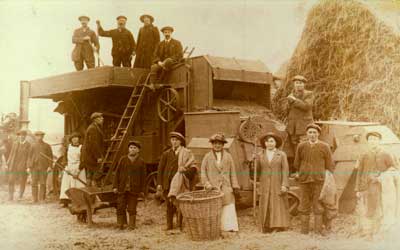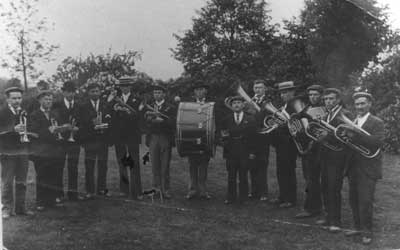| Everyone, even the children, helped out at home. When Dad came home from work, he often spent the evening working in the family vegetable patch - an invaluable source of food during wartime. The children were also expected to give a helping hand chopping firewood and digging vegetables. They were also expected to work around the house, and for those lucky enough to work on the farm, a trip to the local blacksmith with the horses was a common occurrence.
Click here to hear an anecdote from Stan West, as a child, helping to pick potatoes from the garden. This audio clip may take some time to download (about 130K) |


